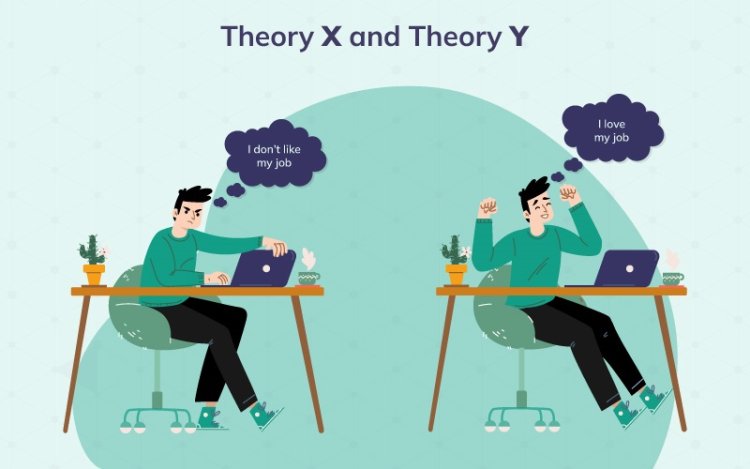Which theory is better Theory X or Theory Y?
Theory X or Theory Y both are having merits and demerits but you can judge the choice of which is a better theory depends entirely on the structure of the organization.
Share this Post to earn Money ( Upto ₹100 per 1000 Views )

Douglas McGregor's postulation of different management styles that was published many years back in the 1960s is still highly relevant today. While both the theories X and Y have their own advantages and disadvantages, Theory Y is considered as more suitable for the modern work culture and management landscape. Let us walk through a short comparison between Theory X and Theory Y and the ideas behind each management styles
Theory X and Theory Y are contrasting in nature, and their relevance and significance may arise in different work culture. Both the theories may affect the work output and productivity. Theory X may be more suitable for a highly structured and process-driven work culture that have strict management policies, tight control and a workplace that uses punishments ad rewards to motivate workers to perform. Theory Y on the contrary may be more suitable for organizations that encourage individual participation and ownership of their own work, who are driven to achieve individual growth along with accomplishing organizational goals simultaneously.
In modern day work culture, Theory Y is considered more suitable and relevant. The workspace today is digitally intense and requires strong collaboration. Leaders today are expected to have thought-leadership qualities and encourage active individual participation of their employees and team members in decision-making. Modern workspace demands creativity, connection of ideas and professionals who are driven and self-motivated. Theory Y management styles, leaders have a positive attitude towards their employees and are guided by the belief that they are driven to perform, creative and self-motivated without being pressured. This postulate has become a more preferred and popular choice of management among organizations.
Understanding the disadvantages of the two separate theories will define which of the two is better.
Disadvantage of Theory X
Theory X is restrictive in nature, and this may lead to workers becoming non-cooperative and demotivated to perform. It runs the risk of organizations facing high staff turnover and getting their reputation damaged in the long run.
Disadvantage of Theory Y
Theory Y may lead to employees getting too much freedom, which may result in straying, underperforming and accomplishment of organizational goals. It may also serve as an advantage for less-motivated employees, and they may dodge their duties and responsibilities.
The choice of which is a better theory depends entirely on the structure of the organization.
















